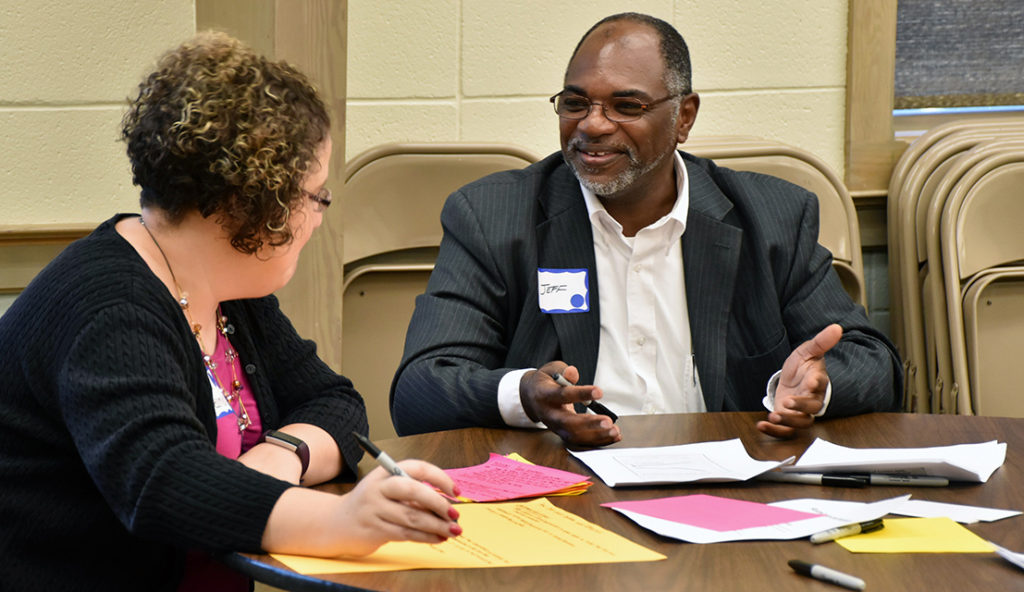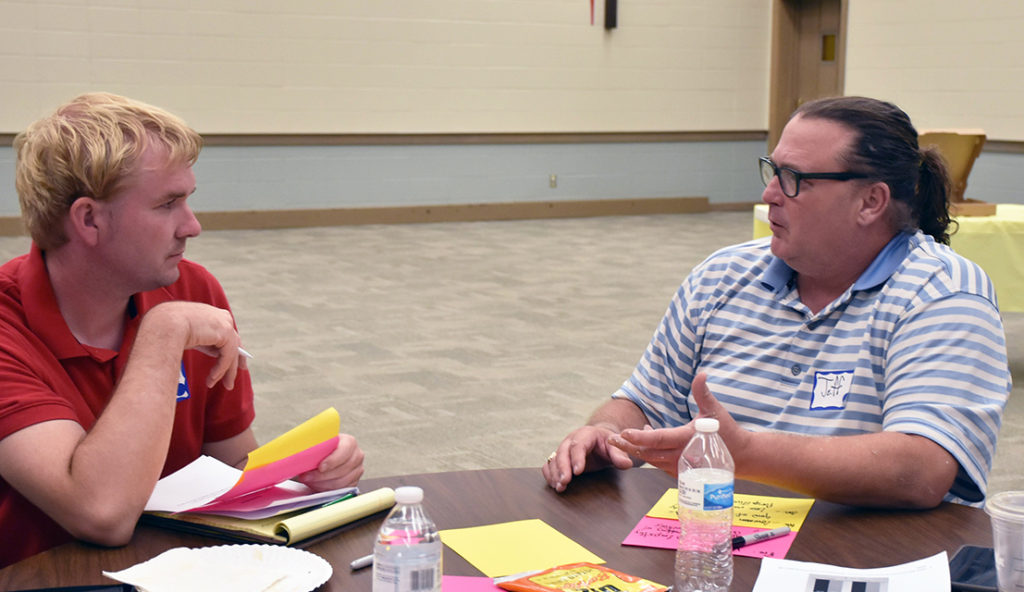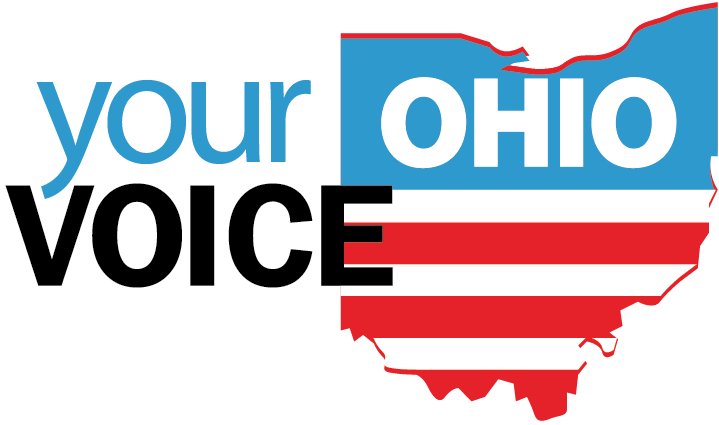In the third of three pre-election meetings in the suburban city of Green, residents took a deep dive into an issue they identified in two previous sessions as critical to the city’s healthy growth: Diversity.
They said Green has two possible paths:
- Continue as a predominantly white, higher income, more educated community that becomes more organized, focused and predictable, though less tolerant of differences, or
- Become exposed to and supportive or other ways of life, more creative and challenging, though less certain of itself.
The conversation grew out of two previous meetings in which residents expressed concern that the city was intolerant to the point that people were unwilling to discuss differences or be open about vulnerabilities, such as illness, addiction and financial challenges. Moreover, there was concern that Green had become disproportionately old – as data show – that housing costs were creating challenges, there was tension at the high-school level between college and career paths and there is a marked lack of diversity regarding race and culture.

Green, like much of Ohio, lacks diversity that successful businesses desire, professionals and managers said in the third meeting. That makes the area less attractive to employers of the future. The city’s children, because they are not exposed to diversity, will be less prepared for the job market than children who are exposed to multi-cultural experiences.
Practically speaking, they said, the sharp increase in retirement living creates a problem for city operations because retirement income is not taxed, though retirees require a new set of amenities. The conversation included a diversity of voices, including long-time residents who questioned the need for diversity, and many people of different religions and races.
They discussed possible changes that could attract diverse cultures and thinking:
- Moderately priced housing for seniors and young people
- Support for trade skills, including business-school partnerships and change in community attitude
- Cross-cultural experiences through government, schools and organizations
- Deliberate exposure to people with different life experiences
- More community events

Ideas from these meetings will be used to shape local issue coverage ahead of the 2019 local and 2020 national elections, giving the community a voice in the democratic process.





